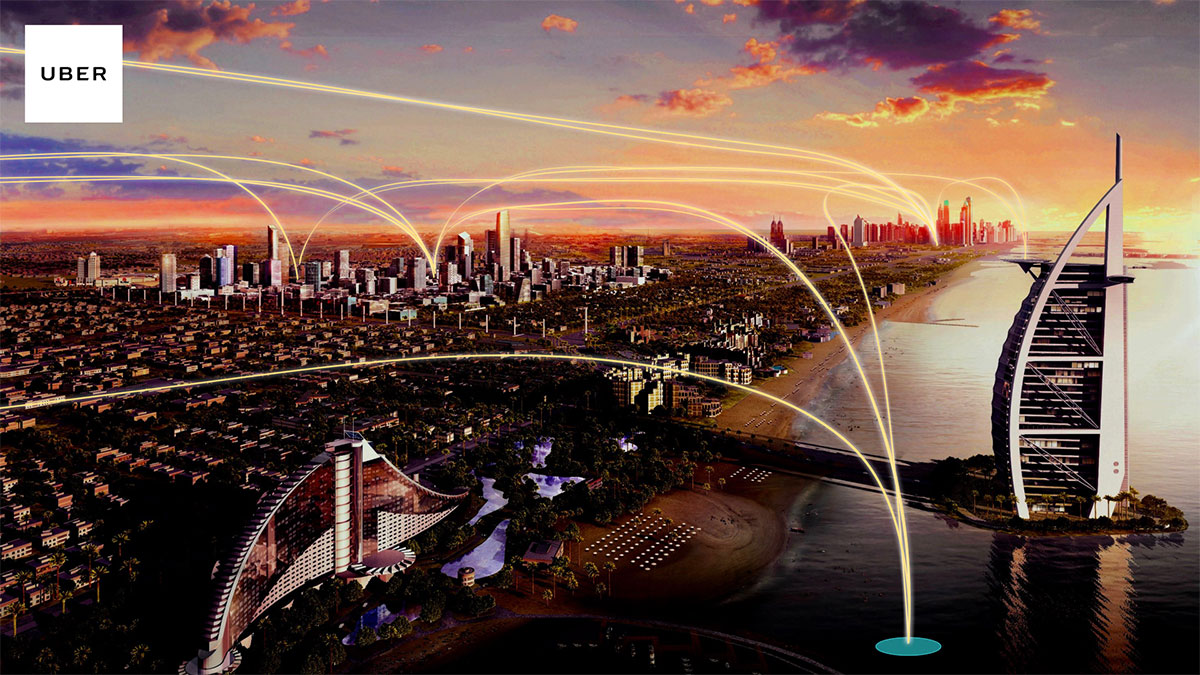What to Know
- Uber contracting with Bell and other aircraft manufacturers to develop electric VTOL aircraft for taxi service.
- Real estate developer Hillwood Properties will develop three North Texas vertiports for demonstrations by 2020.
- Uber estimates rider costs could be $20 for a 15 minute flight from San Francisco to San Jose - akin to going from Dallas to Fort Worth.
Uber announced Tuesday they're partnering with Fort Worth-based Bell Helicopter and four other aircraft manufacturers to build flying taxis that, if all goes to plan, could be whisking North Texans over the Metroplex in just a few years.
The San Francisco-based transportation/tech company said Tuesday they're working with local North Texas governments and real estate developer Hillwood Properties to find suitable locations for vertiports (an airport where aircraft take off and land vertically) around Dallas-Fort Worth.
As part of the deal with Uber, Hillwood agreed to an ambitious timeline where they will develop at least three North Texas vertiport hubs capable of operating VTOL (Vertical Take-off and Landing - pronounced Vee-Toll) vehicles on the Uber network by 2020 for flight demonstrations.
"It even goes back to the Wright brothers, where they wanted to develop a transportation solution that people could use every day, in their normal life, " said Mark Moore, Uber’s director of engineering for aviation. "Finally, the technologies are ready."
Uber, who made the announcement Tuesday at Uber's Elevate Summit, expects to use pilots with full-scale taxi operations by 2023.
 Uber
Uber“Uber convened the world’s first VTOL summit in the Metroplex to bring together key stakeholders who have been working independently around the globe and across industries. As one of the largest helicopter companies in the world based in Fort Worth, Bell Helicopter is a key manufacturer in this process and Uber is grateful for their collaboration," said Moore in a prepared statement.
Among the most critical challenges Uber sees slowing their progress, certifying VTOL aircraft with the Federal Aviation Administration, battery technology to make eVTOL aircraft more efficient, vehicle performance and reliability as well as straining the current ATC system, which they concede will need to be upgraded to handle the increased number of aircraft operating over metropolitan areas. Costs, safety, aircraft noise and emissions are also areas of concern.
Uber's only estimate for costs for U.S.-based riders shows an initial cost of $129 for a trip from downtown San Francisco to downtown San Jose - a trip that would take more than two hours on Caltrain and more than 90 minutes by Uber X. Long term costs, however, drop significantly to $20 for the 15 minute trip.
Local
The latest news from around North Texas.
Bell, along with aircraft manufacturers Aurora Flight Sciences, Pipistrel Aircraft, Mooney and Embraer, will develop eVTOL "aircraft that satisfy short distance urban operations." Uber has partnered with ChargePoint to develop VTOL charging solutions throughout the network.
“Uber’s Elevate network is an exciting opportunity for Bell Helicopter to help transform how cities move people and products in the future. While creating a real, viable urban air taxi network isn’t going to happen tomorrow, this future is closer than many people realize. We are optimistic about the positive impact VTOLs will have on addressing transportation challenges in Dallas-Fort Worth and other cities around the globe," said Mitch Snyder, president and CEO of Bell Helicopter in a prepared statement.
"Bell’s initial propulsion technology focus is expected to be hybrid electric with an eventual goal of fully electric," Uber said.
Uber's long-term goal is to create a network through which electric VTOL vehicles provide safe transportation and delivery services in numerous cities worldwide.
"I think it's exciting for Dallas-Fort Worth area both from the standpoint of being a starting point for the service itself, which will provide mobility to people in this area, but also for the potential for the economy as well," said Michael Thacker, EVP of Technology and Innovation at Bell Helicopter.
Uber will participate in the development of airspace control software and hardware for the management of Pilot VTOLs on the Elevate Network, and provide interface connectivity with airspace controllers/regulators.
In a statement Tuesday to NBC 5, the FAA said:
"We are taking a flexible, risk-based approach to integrating innovative new technologies into the world's busiest, most complex, and safest aviation system. We're already working on automation in unmanned aircraft ("drone") systems that may ultimately have applications for autonomous 'flying car' designs. We have discussed certification projects with several manufacturers of aircraft that will be flown with a pilot in the beginning, then be converted to an autonomous passenger air car in the future. We also have been working with NASA’s On Demand Mobility project addressing advanced air transportation concepts, which include similar vehicles. These autonomous passenger air car concepts are still in their early stages of development. Several areas need further research, particularly identifying the operational risks, making sure the automation that 'flies' the autonomous vehicle is safe, and how the automation will interact with the air traffic control system."
The FAA statement continued by adding that, "if a flying vehicle also operates as a 'roadable car' on streets/highways, it must meet NHTSA (National Highway Traffic Safety Administration) standards."
Online: To see live video Tuesday and Wednesday from the Uber Elevate summit, click here.



